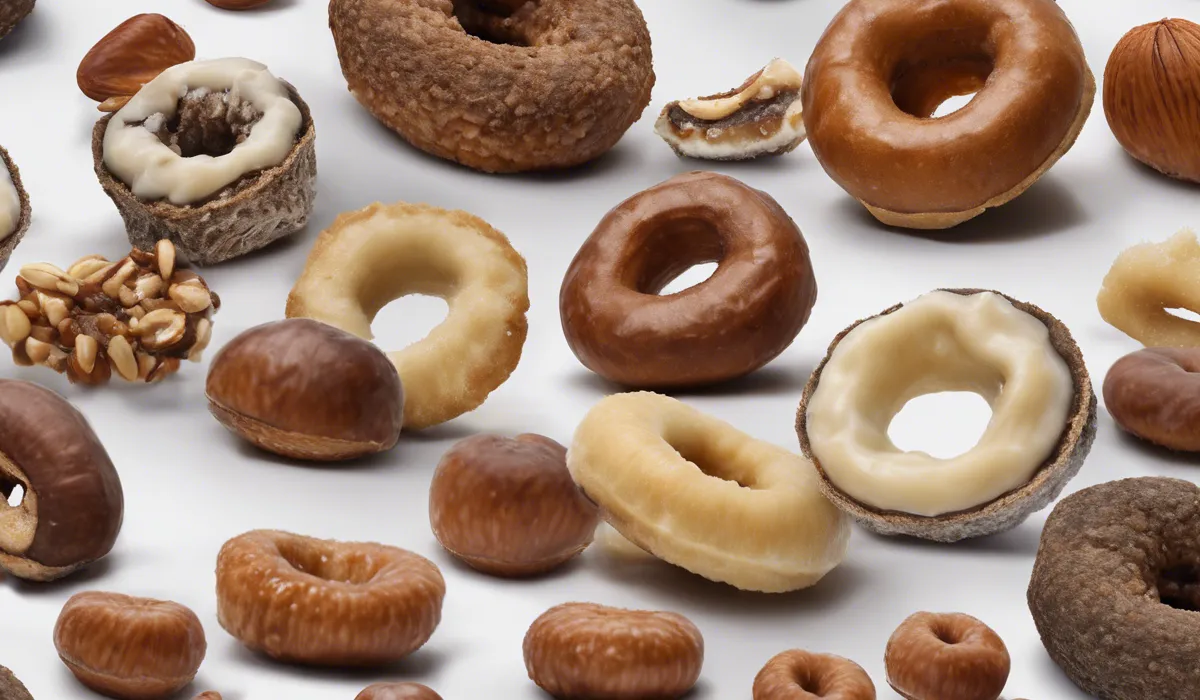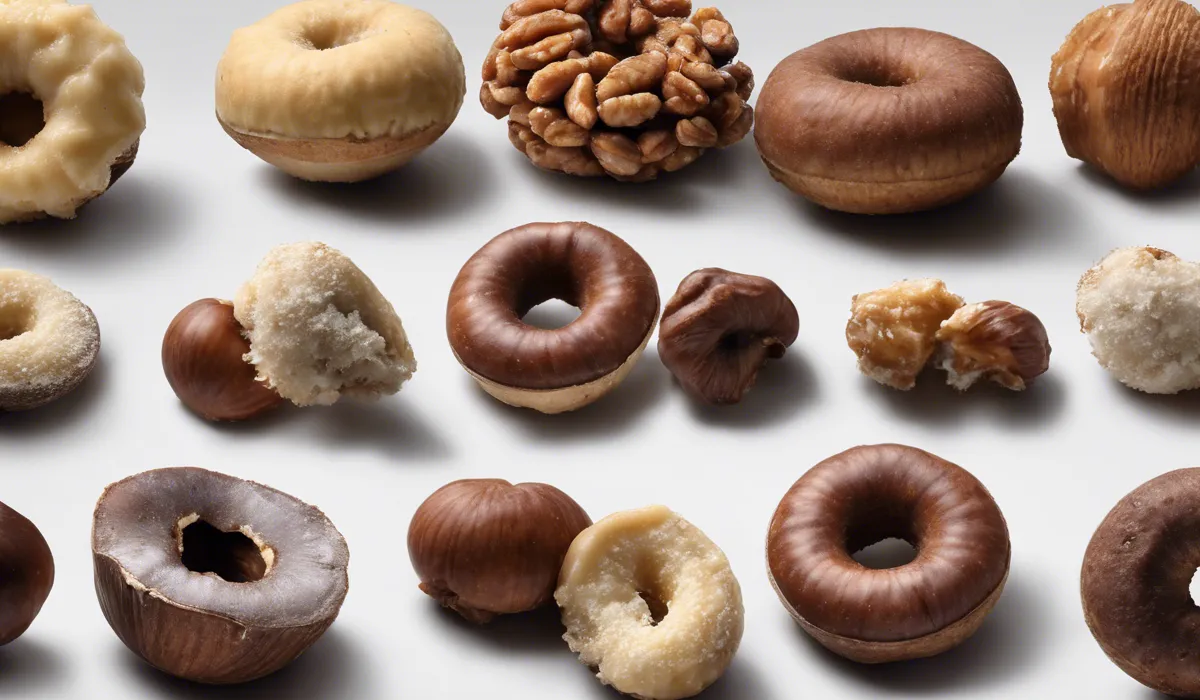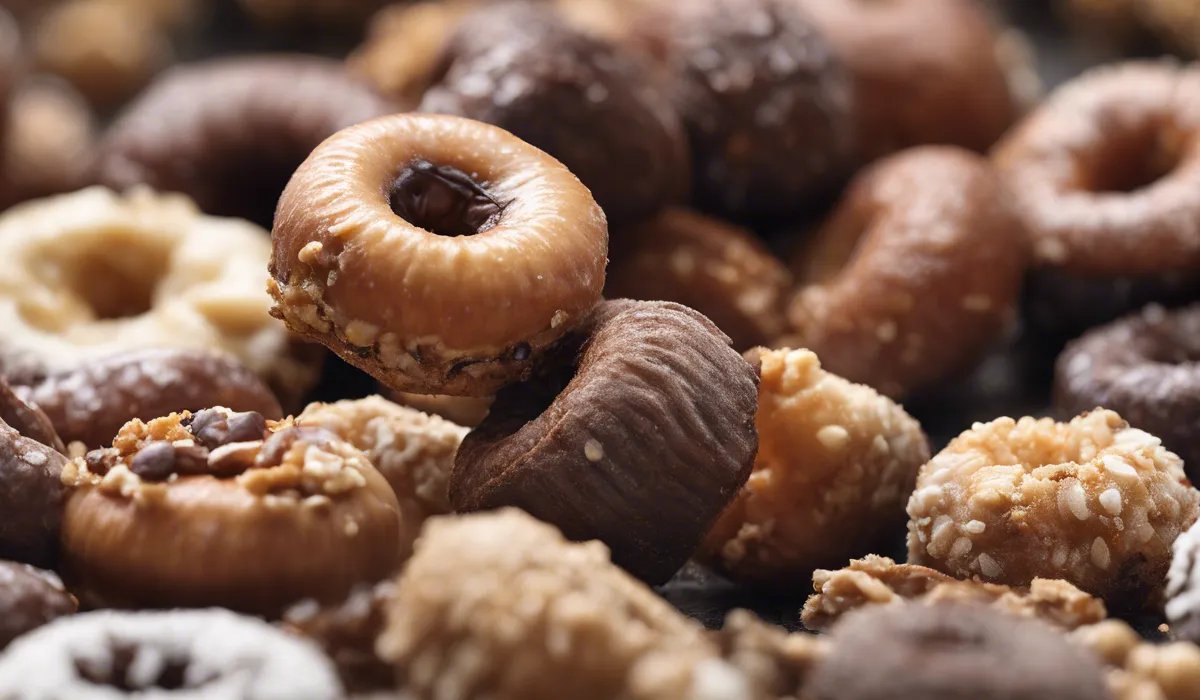Yes, nuts can have mold. Molds thrive in warm and moist conditions, and improperly stored nuts can become contaminated. Aflatoxin, a type of mold found on nuts, is a health concern. To avoid mold, store nuts in a cool, dry place and consume them before they spoil.
Occurrence of Mold in Nuts

What is Mold and How Does it Grow?
Mold is a type of fungus that can grow on various organic materials, including food items like nuts.
These microscopic organisms reproduce through spores, which can be airborne and settle on surfaces. Mold requires certain conditions to thrive, such as moisture, warmth, and a food source.
When these conditions are met, mold spores germinate and start growing, spreading quickly across the surface of the nuts and potentially penetrating deeper into the material.
Factors Contributing to Mold Growth in Nuts
Several factors can contribute to mold growth in nuts. Moisture is the primary factor, as high humidity levels or contact with water can create an ideal environment for mold to flourish.
Temperature also plays a significant role, with warmer conditions promoting faster mold growth.
Additionally, the presence of oxygen and organic material, such as the oils and proteins found in nuts, provide the necessary nutrients for mold to sustain itself.
Nuts More Susceptible to Mold
Some types of nuts are more prone to mold contamination than others. Peanuts, for instance, are often affected by a mold that produces aflatoxin, a toxic substance that can be harmful to health.
Other nuts like walnuts, almonds, and cashews can also harbor mold if not stored properly.
The susceptibility of nuts to mold largely depends on their moisture content, shell integrity, and oil composition, which can vary from one nut variety to another.
Identifying Mold on Nuts

Visual Signs of Mold Contamination
One of the most obvious signs of mold on nuts is a visible fuzz or discoloration that can range from white and green to black.
This growth can often be spotted on the shell or the surface of the nutmeat. In some cases, the mold may form a powdery or velvety coating, which is a clear indication that the nuts should not be consumed.
Smell and Texture Changes Indicating Mold
Moldy nuts often emit a musty or sour smell, which is quite distinct from the nut’s natural aroma.
The texture of the nuts may also change, becoming soft or slimy, which is particularly noticeable with nuts that are typically crunchy.
Such sensory changes are strong indicators of mold presence and suggest that the nuts may not be safe to eat.
Health Risks of Consuming Moldy Nuts
Consuming moldy nuts can pose serious health risks. Ingesting mold can lead to allergic reactions, respiratory issues, and in some cases, more severe health conditions due to mycotoxins like aflatoxin.
Aflatoxin is known to be carcinogenic and can cause liver damage, making it crucial to avoid eating nuts that show any signs of mold.
Prevention and Handling of Moldy Nuts

Best Storage Practices to Prevent Mold
To prevent mold growth, nuts should be stored in a cool, dry place away from direct sunlight.
Using airtight containers can also help keep moisture out, extending the shelf life of the nuts.
For long-term storage, refrigeration or freezing can be effective in slowing down mold growth and preserving the quality of the nuts.
What to Do If Mold is Detected?
If mold is detected on nuts, it is essential to assess the extent of the contamination. Small amounts of mold on the shell can sometimes be removed, and the nut inside may still be safe to eat after being inspected thoroughly.
However, if mold is visible on the nutmeat or there is a suspicion that it has penetrated the nut, it is best to discard the affected nuts to avoid health risks.
Discarding vs. Salvaging Moldy Nuts
When deciding whether to discard or salvage nuts affected by mold, it’s crucial to err on the side of caution.
While some nuts with superficial mold growth on the shell might be saved after careful cleaning and inspection, any nuts with visible mold on the nutmeat should be thrown away.
It’s important to discard any nuts that have an off smell or texture, as these are indicators that the mold may have contaminated the product beyond the surface.
FAQs About Mold in Nuts
Can nuts develop mold?
Yes, nuts can develop mold if stored improperly in conditions that are warm and moist.
What kind of mold is commonly found on nuts?
Aflatoxin is a type of mold that is commonly found on contaminated nuts and is a significant health concern.
Are moldy nuts safe to eat?
No, moldy nuts are not safe to eat due to the potential presence of harmful toxins like aflatoxins.
How should nuts be stored to prevent mold growth?
Nuts should be stored in a cool, dry place, ideally in an airtight container to prevent mold growth.
What should I do if I find mold on my nuts?
If you find mold on your nuts, it’s best to discard them to avoid the risk of consuming harmful toxins.
Final Thoughts
Nuts are susceptible to mold contamination, especially when stored in conditions that are warm and moist. Aflatoxin, produced by certain molds on nuts, poses significant health risks.
To prevent mold growth and ensure safety, nuts should be kept in a cool, dry environment and eaten before their quality deteriorates.
